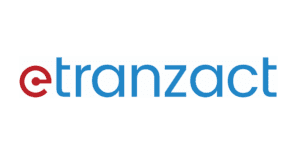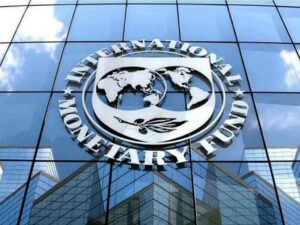
Afrinvest to launch 2024 banking report
…Afrinvest is set to launch the 2024 edition of its Banking Sector report.
The 2024 Afrinvest Banking Sector Report, to be launched on Wednesday, July 31, is expected to unravel issues around banking recapitalisation, the Federal Government’s plan to achieve a $1 trillion economy and the geopolitical economic trends shaping the global financial landscape.
It will further discuss issues around the impact of global economic risks and domestic policy reforms on Nigerians and the banking sector, as well as recapitalisation of the Deposit Money Banks to support the economic target.
The report will digest issues around global economic outlook, global banking sector performance, domestic macroeconomic issues, monetary policy and financial sector regulatory environment.
Released yearly by Afrinvest West Africa Limited led by Ike Chioke and other executives within the group and subsidiaries, the year’s edition of the report will dissect issues around ‘Banking Recapitalisation: Catalyst for a $1tn Economy.’
There will be discussions on ‘Down Memory Lane… The Need for 2004/2005 and 2010 Banking Recapitalisation,’ ‘How Banks Have Fared vs Capital Benchmark…The Birth of a Fresh Banking Recapitalisation Exercise,’ ‘Banking Recapitalisation as a Driver of the $1tn Economy Ambition…Lessons from Indonesia and Banking in Post-Recapitalisation Period: A Potent Arsenal for Driving Infrastructural Development.’
According to the report, which summarises the banking sector performance in 2023 and first quarter of 2024, the Nigerian banking sector has witnessed several recapitalisation episodes in a bid to shore up the minimum capital required to compete locally and globally.
For instance, the 2004/2005 recapitalisation exercise by then Central Bank of Nigeria Governor, Prof Chukwuma Soludo, was a remarkable episode that cleansed the sector. With its N25bn peg, operational banks reduced from 89 to 25.
The report explained that while the cleansing addressed the corporate governance deficiencies and brought the necessary financial stability, technological innovations, international competitiveness and reputation, it had its flaws.
It concluded that the exercise pumped in excess capital, most of which created unhealthy loans, increased Non-Performing Loans and birthed more risk management issues. These laybacks resulted in the repeal of the universal banking model, the establishment of Asset Management Corporation of Nigeria and the revised capital requirement in 2010.
Besides, the CBN had, in its March 2024 capital requirement guideline, announced a new capital structure for banks under different licences to strengthen the financial system and aid the government’s target of a $1tn economy by 2032.
The recapitalisation exercise was also triggered by the clear erosion of banks’ capital buffer post-2010 from a real and foreign exchange perspective compared to 2010 levels.
“Using the 2023 average, the existing minimum capital size has lost 77.1 per cent in FX and 76.5 percent in real terms. To shore up the capital gap, the CBN considered the impact of macroeconomic headwinds on banks’ risk profiles and financial position in defining the new threshold,” the report said.
It explained that while these criteria appear robust, the new capital threshold might not stand the test of time, should there be unprecedented macroeconomic headwinds on banks’ risk profiles and financial position in defining the new threshold.
“To bring this to perspective, a revision of the new capital to projected FX-base (average of N1,200/$) signals a 16.7 percent erosion in capital level. This begs the question of its adequacy considering the need for banks to remain internationally competitive and own a robust balance sheet to efficiently play the intermediation role in the $1tn game plan,” it added.
When launched, the full report is expected to provide further guidance to domestic and global investors on the state of the Nigerian economy, the position of banks and what the ongoing recapitalisation exercise means for the financial sector and government’s drive to achieve $1tn economy by 2032.




